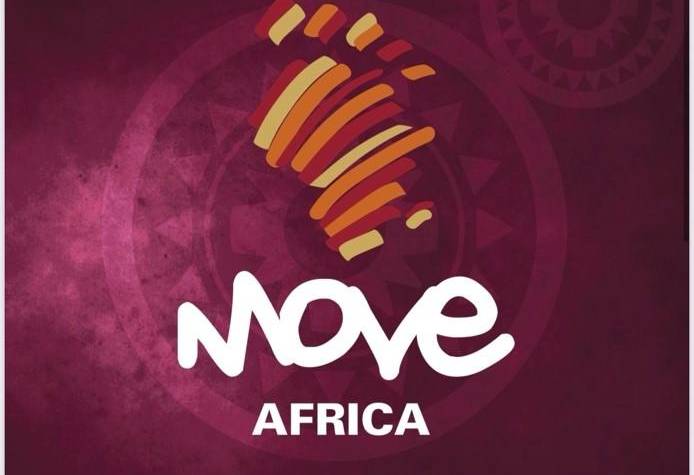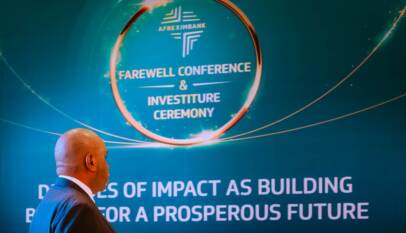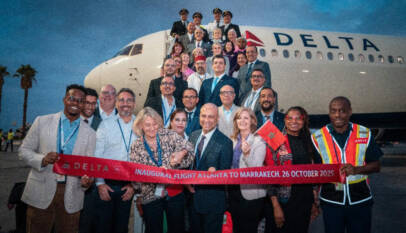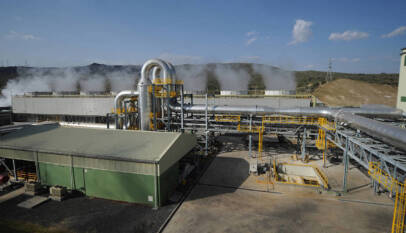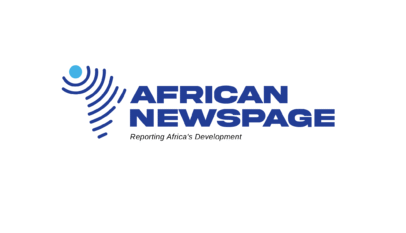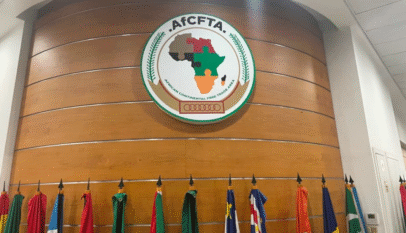Move Africa: Fostering Balanced Media Migration Narratives
The African Union Information and Communication Directorate (AU ICD), in collaboration with Deutsche Gesellschaft für Internationale Zusammenarbeit (GIZ), has launched the Move Africa Communication Project which seeks to shift public perception of migration by moving beyond stereotypes and presenting a more balanced and human-centered perspectives.
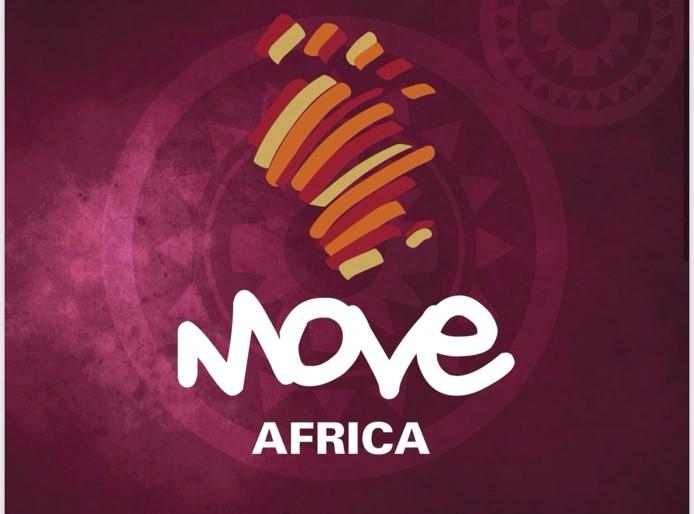
Despite the African Union’s vision for free and unrestricted movement of citizens of African citizens, allowing them the right to live and work anywhere around the continent without significant barriers, the movement of people and goods continues to face significant restrictions. This is due to colonial-era national borders that continue to serve as a major barrier to AU’s free trade and economic integration initiatives.
In this vein, labor mobility is a key enabler of economic development, which necessitates the movement of persons and their goods. According to the International Labour Organization (ILO), migrant workers contribute to growth and development in their countries of destination, while countries of origin greatly benefit from their remittances and the skills acquired during their migration experience.
Although 80% of migration in Africa happens within the continent and more specifically at the level of Regional Economic Communities (RECs), dominant media narratives fueled by media in the Global North portray migration of Africans as largely being an outbound migration to countries outside the continent, particularly Europe. These media portrayals are more about assumption, selective observation, and biased journalistic impressions than sound empirical evidence.
Even African media has also over time created and shaped the public perception of intra-Africa labor migration as dangerous and bloodsucking fueling hatred and violence against African nationals living and working in other African countries. This overshadows the socioeconomic contributions of migrants to their home and host countries in the form of remittances, jobs and employment creation, skills and knowledge transfers, and social integration.
Consequently, the AU has evolved several frameworks to ensure migration contributes to continental integration while protecting the rights and well-being of migrants. These included the Migration Policy Framework for Africa (MPFA); the AU Free Movement of Persons Protocol (AU FMP); as well as the Joint Labour Migration Program (JLMP). Easing intra-African mobility as a means of fostering continental integration is at the heart of the African Continental Free Trade Agreement (AfCFTA).
Shifting African Migration Narratives
The Move Africa Communication Project seeks to shift public perception of migration by emphasizing the benefits, challenges, and opportunities associated with migration, moving beyond stereotypes to present a more balanced and human-centered perspective. This is aimed at fostering a more nuanced and positive understanding of migration, labor mobility and free movement in Africa.
Among others, the anticipated outcome of Move Africa is elevating the level of understanding and knowledge about the AU’s labor migration frameworks such as MPFA, AU-FMP and JLMP among African citizens, policymakers, and the global community, leading to a more balanced perspective on migration in Africa as well as enhancing the skills of African journalists and content creators for accurate and comprehensive reporting on migration.
The project is spearheaded by the AU’s Information and Communication Department (AU ICD), with technical and financial support from Deutsche Gesellschaft fuer Internationale Zusammenarbeit (GIZ) GmbH; the AU Department of Health, Humanitarian Affairs and Social Development (AU HHS) as well as a corps of journalists, content creators and migration experts. There are also the Move Africa grantees which include Africa No Filter (ANF), African Women in Media (AWiM), Baraza Media Lab, The Continent, and YouthHubAfrica (YHA).
Move Africa is premised on reshaping African media migration narratives away from prevailing unbalanced stories to more nuanced depictions. This is rooted in the mission to promote, inform, and advocate for more inclusive migration narratives toward a united Africa where labor mobility is a cornerstone of regional prosperity and cultural richness. By highlighting the positive impacts and opportunities offered by eased labor mobility the project will help dispel myths, address misconceptions, and spotlight the potential of migration to enhance socioeconomic integration.
A key objective of Move Africa is to promote, inform, and advocate for inclusive and progressive migration narratives to foster a more informed perspective on migration in Africa. By changing perceptions and increasing understanding of the key continental migration frameworks such as MPFA, AU-FMP and JLMP among Africans, the project aspires to facilitate the implementation of these policies and contribute to the vision of an integrated, prosperous, and united Africa as enshrined in the AU’s Agenda 2063.
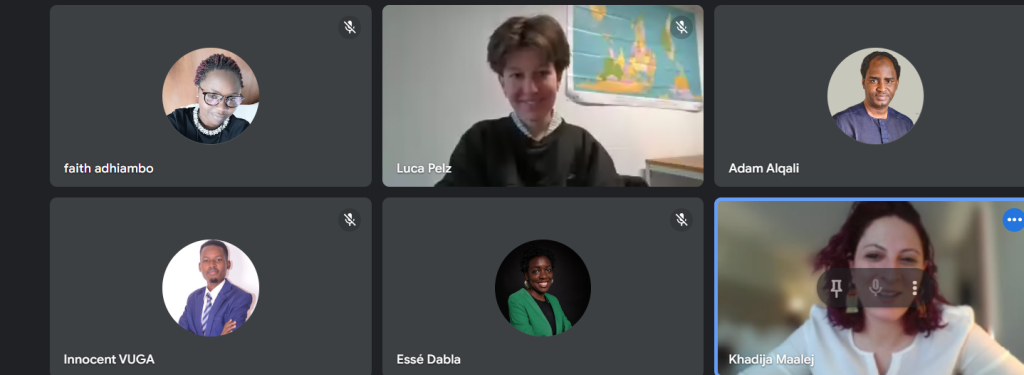
Spotlight Series: Engaging African Media on Migration
As part of the implementation of Move Africa, the project partners have launched the Move Africa Spotlight Sessions designed to facilitate knowledge sharing and collaboration. The virtual monthly convenings aim to promote balanced and human-centered perspectives on migration while advocating for policies that foster safe and regular mobility across the continent. Recognizing the media’s influence in shaping public perception of issues, the sessions will equip journalists and storytellers with resources and training to amplify diverse voices and challenge stereotypes.
Ms Khadija Maleej, Move Africa Project Coordinator said the spotlight sessions were designed to bring together migration experts, media professionals and content creators to explore different aspects of the intersections of migration and media. Ms Maalej said the sessions would also serve as a rendezvous for Move Africa partners, grantees, and sub-grantees to share ideas and collaborate around shaping migration narratives and amplifying diverse voices towards addressing challenges around labor mobility, and free movement in Africa.
Ms Faith Adhiambo, Move Africa Focal Point at AU-ICD emphasized the importance of telling humanized migration stories using illustrations that foster empathy and understanding and help soften the impact of sensitive topics, instead of using stark and graphic images to tell personal stories of individuals. “Using illustrations provides a gentler approach to delivering powerful messages because this method allows audiences to connect with stories without feeling overwhelmed by harsh realities.”
Innocent Vuga, Communication Officer for JLMP at the AU Commission said the AU views migration as part of its development agenda – and not a problem. He said the AU’s approach to migration covers migration’s intersection with critical development issues such as climate change, gender, health, integration, and border governance. “Too often, migration is reduced to tragedy stories of suffering, crisis, and loss. While these realities exist, they are not the full picture. Migration is also about resilience, innovation, and economic contribution.”
Engaging African Media on Migration: Challenges, Opportunities
Guest speaker at the inaugural spotlight session, Adam Alqali, Founder/Editor-in-Chief of African Newspage, underscored the critical role of the media in dispelling myths and misconceptions about labor migration, blaming the lump of labor fallacy – a misconception that migrants takeaway jobs from locals – for this unfortunate reality. As a powerful influencer, he said, the media is well-positioned to create an informed citizenry that appreciates the value of intra-African migration and will subsequently push policymakers to implement continental migration policies.
“There is also biased media reporting that predominantly focuses on Euro-bound migration while neglecting intra-African migration. Research shows that 80% of African migration happens within the continent. The portrayal of African migrants in Western media also entrenches a negative narrative about migration in Africa. The narrative that depicts Africans as solely seeking greener pastures in Europe due to poverty and conflict is biased as empirical evidence shows migration is not always driven by these factors,” he said.
Against this backdrop, Mr Alqali urged the media to counter the lump-of-labor fallacy by popularizing stories about the positive contributions of labor migrants to the growth of the economies of their host countries. Beyond mainstream media, he also highlighted the role of social media and African cinema in promoting positive narratives. He also called for collaborations between filmmakers from different African countries to produce films showcasing the social and economic integration brought about by migration.
The Move Africa project aspires to an Africa where migration is viewed not as merely a challenge to manage but rather as a driver of progress. In a continent where over 40 million people are on the move, reshaping these narratives is a pathway toward fostering unity, growth, and innovation. By reshaping the migration discourse the project aims to build greater support for continental migration frameworks aligned with Agenda 2063, the AU’s strategic framework for inclusive and sustainable development.

